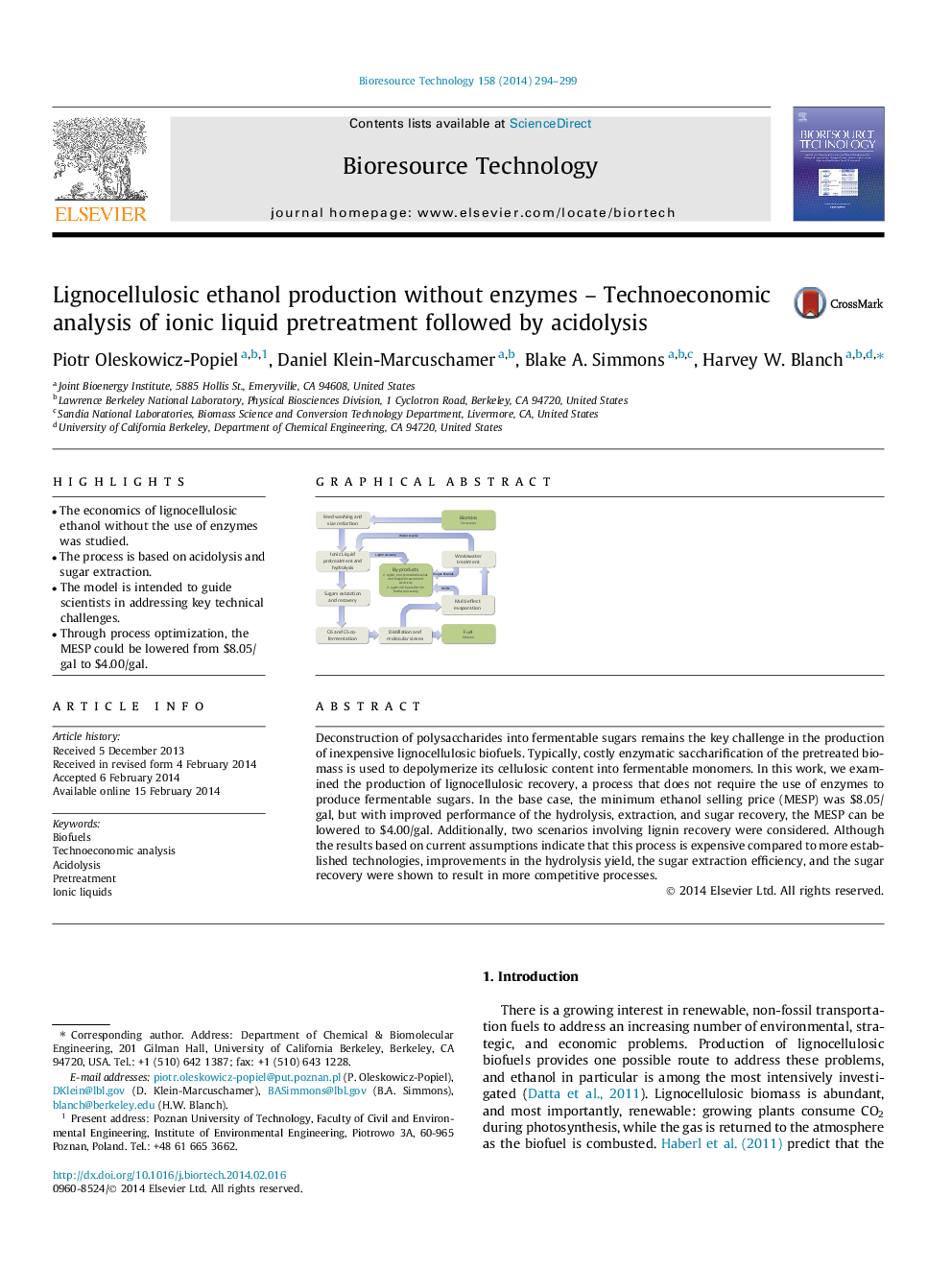| Article ID | Journal | Published Year | Pages | File Type |
|---|---|---|---|---|
| 680806 | Bioresource Technology | 2014 | 6 Pages |
•The economics of lignocellulosic ethanol without the use of enzymes was studied.•The process is based on acidolysis and sugar extraction.•The model is intended to guide scientists in addressing key technical challenges.•Through process optimization, the MESP could be lowered from $8.05/gal to $4.00/gal.
Deconstruction of polysaccharides into fermentable sugars remains the key challenge in the production of inexpensive lignocellulosic biofuels. Typically, costly enzymatic saccharification of the pretreated biomass is used to depolymerize its cellulosic content into fermentable monomers. In this work, we examined the production of lignocellulosic recovery, a process that does not require the use of enzymes to produce fermentable sugars. In the base case, the minimum ethanol selling price (MESP) was $8.05/gal, but with improved performance of the hydrolysis, extraction, and sugar recovery, the MESP can be lowered to $4.00/gal. Additionally, two scenarios involving lignin recovery were considered. Although the results based on current assumptions indicate that this process is expensive compared to more established technologies, improvements in the hydrolysis yield, the sugar extraction efficiency, and the sugar recovery were shown to result in more competitive processes.
Graphical abstractFigure optionsDownload full-size imageDownload as PowerPoint slide
